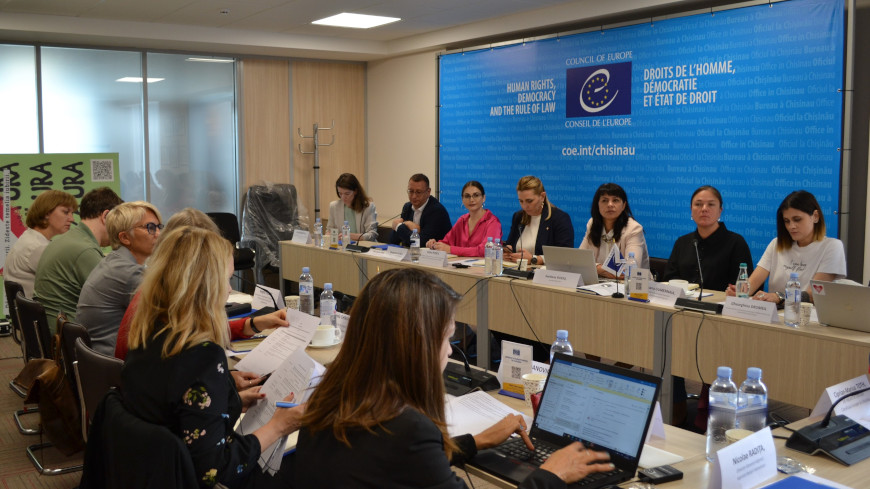Main stakeholders and partners of the Council of Europe in the field of anti-discrimination, exchanged views on further actions to prevent and combat discrimination and promote equality at central and local level in the Republic of Moldova.
The first part of the meeting gathered the representatives of the Equality Council, People’s Advocate, General Police Inspectorate and General Prosecutor’s Office. Institution representatives, discussed the protection mechanisms available in cases of discrimination and violation of rights and the need to increase the awareness of citizens about the competences of the relevant institutions acting in this field and way to approach them on this subject. This meeting created a platform and a plan for further coordination and joint awareness raising actions to prevent and fight discrimination and hatred in the Republic of Moldova.
The second part of the meeting, along with the representatives of the above state institutions, involved also civil society organisations and focused on the "Protection mechanism against discrimination and bias motivated crimes at local level". Through this discussion, the participants exchanged experiences and ideas for identifying solutions and creating synergies to ensure protection of rights of vulnerable groups at local level. Discussions focused particularly on three vulnerable groups - Roma community, LGBTI and persons with disabilities, frequently subject to discrimination, hate speech and bias-motivated crime, listed in Article 134 of Law No 111 of 2022.
Participants stressed the importance of supporting civic activists at the local level and drew attention on the necessity to document cases of discrimination and encourage reporting of bias-motivated violence acts. The need to continue cooperation, efforts to develop a local culture of inclusion and non-discrimination and to train actors involved in preventing and investigating bias-motivated violence has been confirmed, as well as commitment to continue with activities that will lead to improvements in this field.
This event is part of the European Union and Council of Europe joint programme “Partnership for Good Governance”, co-funded by the European Union and the Council of Europe, and implemented by the Council of Europe, in the framework of the project “Combating discrimination, hate speech and hate crimes in the Republic of Moldova”.





